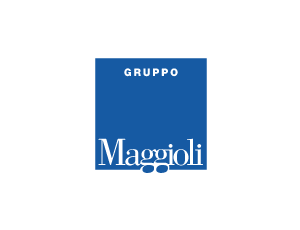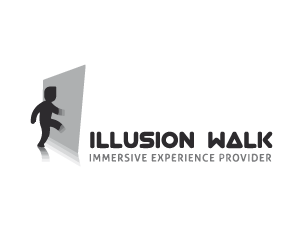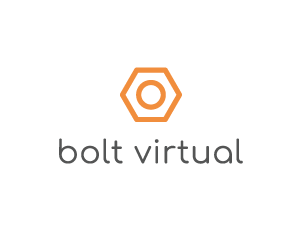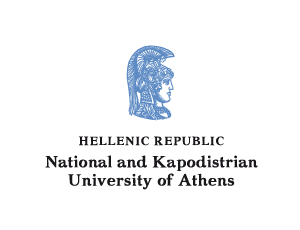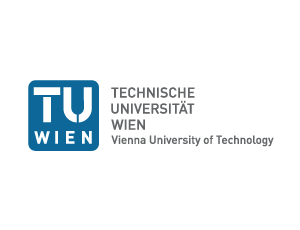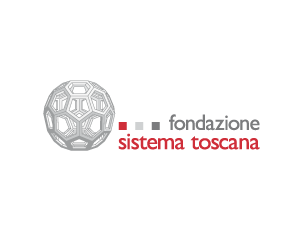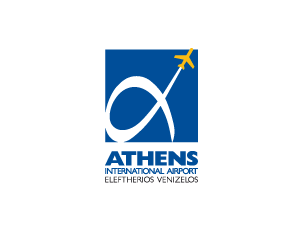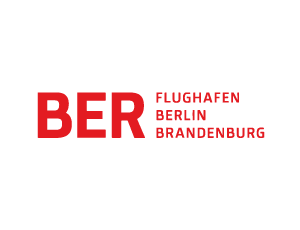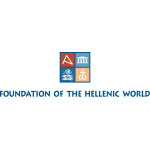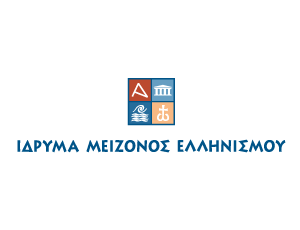BRIDGES consisted of broad and heterogeneous European partnership. Discover BRIDGES team members!
Gruppo Maggioli
Maggioli S.p.A, is a leading Italian company offering a broad range of specific, highly professional solutions in several domains (business areas): i) Information Technology, ii) Services & Technologies, iii) Publishing, Training and Education, iv) Document Management, and v) Museums, Art and Culture. The company belongs to the Maggioli Group, which has more than 2000 employees around the globe.
Maggioli is the most qualified system integrator and leader in provisioning of complete IT solutions and services for the Local Public sector: more than 6,000 Municipalities out of 8,048 in Italy runs about 100.000 modules provided by Maggioli. In addition, it provides services to 3,800 museums and SMEs.
Important characteristic of the company is the widespread presence in Italy where Maggioli is operating with 3 branches (Rome, Milan and Bologna), 6 commercial branches (Udine, Cremona, Piacenza, Reggio Emilia, Sesto Fiorentino and Catanzaro) and 11 technical offices (Forlì, L’Aquila, Magenta, Grassobbio, Savigliano, Imperia, Cosenza, Palermo, Messina, Ragusa, Teramo), but also extended its activities abroad with offices/subsidiaries in Belgium (Brussels), Spain (Tenerife and Madrid), Greece (Athens) and Colombia (Bogota).
The Maggioli group has also large experience in Museums, art and culture and Training. Maggioli Group holds significant expertise in computer applications for museums, historical, archival and bibliography. For instance, Maggioli Cultura (https://www.maggiolicultura.it) is a new initiative that offers Municipal and National Museums a wide and complete range of specific products and services. Maggioli Museums aims to assist and support the revitalization and development of the Italian Museums; from Digitization, Informatics, Web and App in addition to more traditional areas such as Printing and Publishing, as well as Consulting and Virtual and Augmented Reality.
In aspects of Training, Maggioli organizes masterclasses to provide training for local authorities, public companies and professionals, to study in depth the legal and management issues of greatest interest for operators in the sector. With over 650 standard courses and in-house training activities, these latter being specifically tailored to meet the needs of clients and held on their premises. This consolidated offer is complemented by Distance Training, provided over the Maggioli E-Learning Academy technological platform, a simple and intuitive tool that permits participation in online audiovisual courses without requiring complex computer skills. Every year, more than 26,000 public administrators, directors and officers rely on our services for their professional development and the modernization of public administrations.
Maggioli is leading the BRIDGES project, and the Coordinator is Nikos Achilleopoulos. Maggioli is responsible for the Project Management and the Exploitation activities.
Illusion Walk
Illusion Walk KG has been a specialized provider of walk-in, multisensory virtual reality platforms for the last 6 years, and with the development of the Immersive Deck, has realized a modular virtual reality platform that allows multiple users to move freely across multiple rooms and interact with real objects. The tracking technology created by Illusion Walk provides the technical basis for the BRIDGES project and has already been used in several research platforms and training examples.
Illusion Walk sees itself as a provider of highly specialized VR business solutions for a wide range of different VR-platforms and tracking systems. The company was founded in 2013 to bring the vision of highly immersive, walk-in virtual reality platforms to life. The office, including a 300m² VR platform, is located in BerlinCharlottenburg and focuses on applications for training, health and entertainment. The range of services includes conception, hardware assembling, design and content creation and its additional services. IW operates a VR center in Berlin and also offers training courses and workshops for a wide range of target groups. The nine long-standing employees come from the areas of computer visualization, game development / production, 3D graphic design and innovation management.
Illusion Walk will be involved in nearly all tasks throughout the BRIDGES project. As provider for the basic technology, we work in close cooperation with Technical University of Wien on the improvements for content integration and a larger user base. Illusion Walk will also produce the content with design, production of assets and programming for the training use case (Pilots 1a and 1b). Another part will be the pilot-specific platform Deployment & Demonstration, Additionally, IW will provide technical support for all installations, in particular for Pilot 1b. As an SME interested in commercializing the solution, IW will be contributing in the drafting of the business plan and carrying out exploitation activities.
BRIDGES is a great opportunity to bring different players of this future market together and to show up how future training and presentation form could be developed within Europe.
Bolt Virtual
Bolt Virtual is a market leader in the field of XR technologies in Greece. It is the first company to bring immersive virtual reality to the Greek market with ‘The VR Project’, which in August 2016 was the first VR lounge in the country, and one of the first in Europe.
Since then, Bolt Virtual has progressed to be a major XR software company in Greece, creating XR applications used in education, training, cultural heritage, tourism products & destinations, gaming & gamification of scientific applications, and product and service marketing.
We are specialized exclusively in XR services, while being the only Greek company that combines (i) VR software development, (ii) the ownership of a specialized VR space for the general public, and (iii) the organization of VR events at the chosen location of our customers.
Regarding virtual reality software development:
- We produce for most of the top-end VR systems, including Vive, Oculus Quest, Rift, Windows MR etc.
- We Develop VR applications and games for tourism and culture marketing, to promote heritage & destinations, applications that allow artists and artists to depict their work in virtual reality, creation of digital virtual projects for young artists
- We produce applications for experiential product marketing in a virtual reality environment for companies that want to diversify their marketing mix.
- We design and develop integrated interactive educational applications in VR where the student walks through simulations or creates, modifies and manipulates virtual objects to enrich his knowledge
Regarding our on-site VR lounge:
- The ‘The VR Project’, a trademark of Bolt Virtual, is an immersive entertainment centre located at the centre of Athens operating since 2016.
- The site has been visited by more than 300 school classes in the framework of school educational visits, ranging from the 5th primary grade to high school classes, many companies organising their corporate events and thousands of individual customers.
Regarding the organisation of external VR events:
- Dozens of external events have been organized with the VR’s portable VR equipment for corporate and retail customers, festivals, conferences, schools and tutorials,
- Commercially available applications, or custom applications created for that particular customer are showcased.
Bolt Virtual role in the BRIDGES project is multifaceted along the lines of the functioning of our company. It involves defining requirements, building the application and testing its effectiveness in the real world. To this end, we will be assisting in:
- Project conceptualization and defining requirements and scenarios for the platform development and the pilot deployment;
- Technical design, implementation and integration of the BRIDGES platform;
- Defining, deploying and monitoring the pilots;
- Communicating the project results, for the scientific outreach of the project;
- Managing of innovation and exploitation of BRIDGES outcomes.
Bolt Virtual will play a key function towards the development of the platform, the scenarios for one of the XR pilot showcases, build out the actual application using the tools provided by the partners, and be directly involved in its promotion, pilot testing and roll-out plans for the future.
We are very exited to work on this project as a natural extension of our day to day activities. It provides us with an excellent opportunity to develop a new product, and test it in a real world scenario, directly along the lines of our existing business model: XR product development and showcasing in a dedicated area. Moreover, it allows us to experiment with the exciting new Immersive Deck technology of our partners, and to observe and work with all segments of the XR ecosystem including researchers, product developers, marketing professionals and venue operators – and all this on an international level across the EU! We are extremely honored and excited to be part of this diverse and highly motivated team.
National and Kapodistrian University of Athens
The National and Kapodistrian University of Athens (NKUA) is a major public research university and the oldest tertiary education institution in Greece, in the Balkan and Eastern Mediterranean area. It consists of five Faculties, with more than 51,000 registered students and 2,500 Teaching and Research staff members.
The Department of Informatics and Telecommunications (http://www.di.uoa.gr) is one of the 43 departments of the NKUA. The Department staff consists of 48 academic faculty members and over 100 PhD candidates and research associates. The research and development activities within the Department cover a wide spectrum of Information and Communication technologies, including Databases and Knowledge Bases, Data Mining, Digital Libraries, Human Computer Interaction and others. The department is home to five ERC Research Grants and has been involved in more than 100 funded ICT research and development projects at the European (e.g., H2020 and previously FP6 and FP7) and national scale (e.g., Operational Programs for Education and Initial Vocational Training funded by the Greek Ministry of Education).
NKUA’s team for BRIDGES is comprised of the following computer scientists and UX researchers: Assistant Professor Maria Roussou (Principal Investigator), Dr Katerina El Raheb, Dr Akrivi Katifori, Christos Lougiakis, Dimitris Nastos, Athan Soulis, Lydia Themeli.
We are excited to be participating in BRIDGES as leaders of the User-Centred & User Experience Design (WP3) and the Evaluation and replicability assessment (WP6) work packages. These work packages are critical in supporting the goal of bringing eXtended Reality (XR) solutions into the mainstream.
Our role in BRIDGES includes the elicitation of user requirements through participatory design methods, as well as informing the design of the scenarios, leading the design of the evaluation studies, and carrying out usability and User Experience evaluation of early and advanced prototypes.
One of the best parts of our work is that it is truly interdisciplinary and we get to meet and work with a variety of interesting of people, from first responders, firefighters, and airport professionals to archeologists, museologists, and museum visitors of all ages. It is their needs that we are called upon to synthesize so that the BRIDGES solution can serve them by “bridging” the gap between innovative immersive technologies and their uptake.
Technical University of Wien
Technical University of Wien (TU Wien or TUW) has been conducting research, teaching and learning under the motto ‘Technology for people’ for over 200 years. TUW has evolved into an open academic institution where discussions can happen, opinions can be voiced and arguments will be heard. Although everyone may have different individual philosophies and approaches to life, the staff, management personnel and students at TU Wien all promote open-mindedness and tolerance.
The research unit of Computer Graphics focuses on three main topics: Rendering and Modeling, Virtual and Augmented Reality, and Visualization. In Rendering, we research the synthesis of realistic or non-photorealistic images depicting 3D models or scenes by simulating or approximating the physics of light. In Modeling, we concentrate on methods and algorithms that facilitate the creation, representation, analysis and processing of 3D models. In particular, we work on advances in real-time rendering, computer games, real-time visualization of urban environments, point-based rendering, reconstruction of urban models, procedural modeling, shape modeling, In Virtual and Augmented Reality, basic and application oriented research happens in a wide range of fields associated with VR/AR. AR, VR and Mixed Reality technologies in general are used in different industries – manufacturing, entertainment, medicine, research – for various applications such as training, education, visualization, therapy, rehabilitation, gaming or cultural heritage.
We focus on walking in large scale Virtual Reality (“Holodeck”) and its applications, on haptic interaction as well as on Augmented Reality applications. Visualization uses computer-supported, interactive, visual representations of (abstract) data to amplify cognition. It typically incorporates automatic and interactive data analysis and synthesis in decision making scenarios where the human expert is kept in the loop. We perform basic and applied research projects in all areas of visualization. Examples include biological data visualization, medical visualization, information visualization and visual analytics, perception in visualization, and visualization in the material sciences.
The main task of TU Wien within the BRIDGES project is research and development of technical components related to interaction with real and virtual objects, mapping and 3D reconstruction of the real environment and improving the multi-user capabilities of the platform.
TU Wien and the research unit of Computer Graphics is excited to participate in the BRIDGES project, because it can contribute many of its core competencies such as virtual reality and augmented reality, tracking, scene reconstruction, 3D interaction techniques and XR training and education applications. Bringing the innovative XR technologies developed within the project one big step closer to the market and to adoption by a multitude of people is a great motivation.
Fondazione Sistema Toscana
Fondazione Sistema Toscana (FST) is a non profit participative foundation created in 2004 by the Tuscany Region and Monte dei Paschi di Siena bank with the aim to promote the Tuscan territorial system through integrated multimedia communication tools.
As technological developments and communication tools continue to evolve, FST has adapted over these years its daily work coherently with its mission to promote the whole Tuscany system and its identity, by managing a great variety of fields: digital communication, cultural heritage, tourism promotion, cinema and audiovisual activities (even including film commission), youth policies.
To this end FST:
- has implemented a web newspaper – Intoscana.it – aimed at the information and communication of the Tuscan excellences in every field, supported by several communication channels (WebTv, radio, streaming…),
- manages the official Tourism web portal of the Tuscany Region – VisitTuscany.com,
- runs a cinema theatre in Florence and two supporting infrastructures to cinema and audiovisual manufacturing (in Prato and Pisa)
- manages the regional office “GiovaniSì” dedicated to encourage the process of transition of young people towards autonomy by strengthening and promoting all the opportunities related to education, job, housing, entrepreneurship, sport, citizenship, culture and volunteering.
FST additionally carries out projects and initiatives by conceiving and delivering complex events such as Internet Festival (the main Italian event devoted to the Net), Festival of Europe (event to promote the common European values), Buy Tourism Online dedicated to investigate the relationship between tourism and digital activities, several Film Festivals etc.
Thanks to its experience, know-how, networks and acknowledgments acquired, FST has become one of the main actors in the field of digital integrated and cross media communication at National level, with several collaborations on European level by participating at numerous EU funded projects.
FST will be responsible to coordinate the dissemination and communication of BRIDGES project by identifying objectives, approaches, channels and activities to the different targets.
FST is excited to participate in the BRIDGES project exploring such innovative field of XR in order to investigate the role and applications of this technology in different fields, and how XR can contribute to innovate, enrich and strengthen the Tuscan territorial system.
Athens International Airport
Athens International Airport (AIA) is the largest airport in Greece. It is the first major (€2.2 billion) Public Works project constructed in Greece under the Public-Private Partnership scheme (60% funded through commercial debt). Business-wise, AIA operates on the “User recovery” principle and is being managed as a commercial, profit-making company of the private sector.
The contribution of AIA to the GDP of Greece is estimated at €7.9 billion (4.4% of the GDP, year 2017 figures), while the employment impact is estimated at 181,000 jobs (4.8% of total employment in the domestic labour market, year 2017 figures).
Passenger traffic in 2019 reached approx. 26,000,000 mil. The 2013-2019 accumulated growth in passenger traffic terms is 70%. The Airport hosts more than 370 companies with approx. 16,000 employees, servicing more than 100,000 passengers and 800 flights per day during pre-COVID-19 peak periods.
AIA is delighted to be part of the BRIDGES partnership scheme and to jointly host the pilot deployment of an XR platform for firefighting training purposes; rescue & firefighting is of paramount importance for any type of critical infrastructure / facility, but even more important for airports of this size, servicing the above stated passenger and aircraft traffic volume. No doubt this is a highly challenging project, but the offered opportunity to test-use cutting-edge technology in such a specialized segment was not one to be missed by either AIA or the Hellenic Fire Corps (the latter being the provider of Rescue & Firefighting Services to the Airport), as the project deliverables are expected to create a significant improvement over the current, traditional approach in firefighters training.
Berlin Brandenburg Airport
Berlin is the third largest airport location in Germany, measured in terms of arriving and departing passengers (excluding transfer passengers) even the largest. Schönefeld (SXF) and Tegel (TXL) Airports handled around 35.65 million passengers in 2019 – that was a new passenger record.
Since November 2020 BER (Berlin Brandenburg Airport) is the new single-airport of the German capital region. The Berlin airport fire brigade consists of 295 firefighters and is responsible for rescue, firefighting, and technical assist in any case of emergency at the airport.
We have been in contact with Illusion Walk in Berlin for a number of years and are pleased to participate now in the further development and dissemination of this exciting technology – especially for fire departments – as part of the BRIDGES project.
Foundation of the Hellenic World
FHW’s mission is the preservation of Hellenic history and tradition, the creation of an awareness of the universal dimension of Hellenism and the promotion of its contribution to cultural evolution. Its aim is the understanding of the past as a point of reference for the formation of the present and future so that contemporary thought may once again be inspired by the Hellenic spirit.
FHW has developed an important expertise that combines cultural/historical information with the new technologies, as well as the development of innovative educational mediums in the field, being one of the leading European organizations in that field. FHW has successfully implemented a large number of relevant projects and has gathered specific know-how on content design and structuring and methodologies for the visualization of historical and cultural content, developing at the same time significant resources available to the scientists and the wide public either on the internet or in its cultural centre in high-end systems such as virtual reality theaters and multimedia exhibitions.
FHW has implemented research in cultural and educational programmes in European projects, in national programmes of the General Secretariat for Research and Technology and for the Information Society as well as independently and for the private sector.
FHW collaborates with many important research and cultural institutions, government agencies, universities, museums, and other institutions worldwide and participates in networks of excellence.
Hellenic Cosmos, FHW’s Cultural Centre is a multifunctional area where visitors experience Hellenic history and culture, while at the same time it is a venue of cultural creation and expression. In its areas we organize a wide range of activities, open to people of all ages and interests:
- Interactive exhibitions
- Virtual Reality Tours
- Educational Programmes
- Conferences
- Theatrical Performances
- Documentaries
- Art events
Through the use of state-of-the-art technology the examination of Hellenic history becomes a truly remarkable experience. Audiovisual and interactive media provide a new way for the dissemination of historical information, where the audience participates actively, wonders, intervenes and shapes the way the happenings develop.
The main tasks in the BRIDGES project will be: the design of the scenario of the informal learning / edutainment use case; participation in the programming and engineering of the experience in order to verify, test, enhance its application of the scenario and space; providing and setup the site where the platform will be installed and piloted (including access to users, the visitors of the cultural centre); the dissemination of the project with a dedicated event and through social media.
The Bridges project aligns with FHW mission and current goals of enabling Historical Educational Content through the use of Highly immersive HMD based VR experiences. As our current Virtual reality systems can host larger groups only, location based immersive HMD experiences for small groups of 2-5 persons are a niche we would like to explore thoroughly. The Bridges project will enhance the quality of the visitor’s experience and informal learning by the sheer immersion of the system and natural user interactions bundled in an Educational concept. The ability not only to “visit” a virtual environment and have a limited interaction but to immerse in the environment and enhance the interaction will create much more opportunities and abilities for informal education. There will be the possibility not only of observation but also of active participation in the virtual environment, something that will make the participation quite lively. This process will enable for a wider educational content development that can cover a wider part of the educational process. We envision to make the outcome of this project available for visitors and would like to invest in implementing additional experiences.

